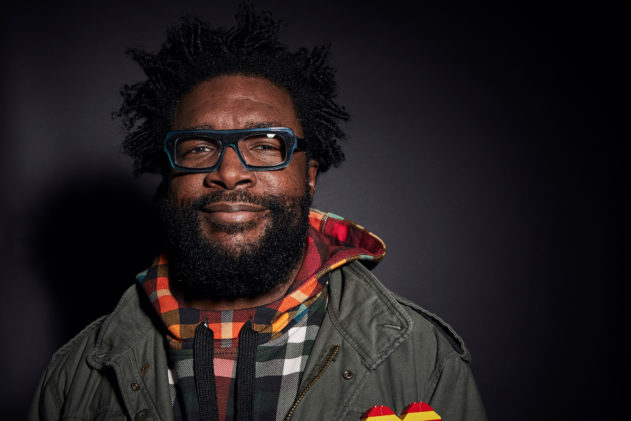SUNDANCE: “Summer of Soul (… Or, When the Revolution Could Not Be Televised)”
“Harlem was Heaven to us. It was a place where I was safe, happy, and made lifelong friends… to us, Harlem was Camelot.”
-Festival attendee
The Harlem Cultural Festival in the Summer of 1969. A free concert attended by over 300,000 people.
The great Stevie Wonder takes the stage on a rainy afternoon. After singing a while, Wonder takes to the drums and the music is used to powerfully announce this amazing musical and cultural journey.
In 1969 America was in turmoil. Black America was in crisis. New York was a hotspot of understandable rage and, as one attendee states, “perhaps they gave the festival so we wouldn’t burn down New York.”
Ahmir- Khaleeb Thompson’s absolutely intoxicating documentary “Summer of Soul (… or, When the Revolution Could Not Be Televised)” takes its place as one of the best music concert/ documentaries ever made.
Tony Lawrence was the man who put to all together. He was a man who could deliver what he promised, and he used that positive reputation to schmooze with the right people and make them believe in his idea for the big Harlem concert.
With a low budget (the stage had to be pointed West to make sure the sun would light it) and pockets full of trust, Tony Lawrence’s Harlem concert was a go!
Thompson’s film is much more than just a concert film (but what a concert film it is!). It also tells the tale of the struggles of Harlem, then and now. The director brilliantly mixes reflections from those who performed with those who attended.
It is unreal how many interviews the director weaves in amongst the musical numbers, with every single one of them powerful in their own way.
In one of the film’s most moving recollections, Marilyn McCoo and Billy Davis, Jr. reflect on their time as The 5th Dimension at the concert and the impact their performance had on the audience, the community, their career and their hearts.
In a brilliant stroke, Thompson shows the day of the first Moon Landing (which happened during the concert). As The Staples Singers sang a song of change, the filmmaker cuts to the hopeful reactions of White America followed by the reactions of the festival crowd who could care less about landing on the moon. Being at that concert at that time in 1969, America WAS Black American History.
And the music? It will take viewers into the stratosphere!
Sly and the Family Stone, The Staples Singers, Max Roach, Abbey Lincoln, B.B. King, Gladys Knight and the Pips, Nina Simone… As Sam Spade said in “The Maltese Falcon,” “it’s the stuff that dreams are made of.”
The moment when Mahalia Jackson and Mavis Staples sing gospel together brought tears to my eyes—it might just be one of the most powerful stage performances my ears and soul have witnessed. I challenge anyone not to jump out of their seat with emotion during this and many of the musical performances. I cannot fathom what it was like to be there.
Why do we not know more about this amazing concert? No one cared to keep it as a part of history. The existence of this film is testament to the ugly truth of those who try to continuously erase Black History. This concert was, and is, an important part of this Black History that means a lot to so many.
Thompson’s film is itself a celebration of music, of culture, of the Black experience. It speaks to the forward movement of Black music and the Black community at that time. The relevance in the struggles of Black Americans does not just echo today, it demands to be heard. For the heart and soul of this country, this is the time for this film.
This is a profound film of a history buried for fifty years. It will make you cry, laugh, and sing, and it will move you deeply, finding its way into your soul.
By year’s end, this film will be celebrated as one of 2021’s finest. I toast Questlove (Ahmir Khalib Thompson) for directing one of the most exciting and important music documentaries ever made.
news via inbox
Nulla turp dis cursus. Integer liberos euismod pretium faucibua



